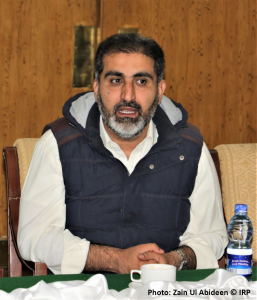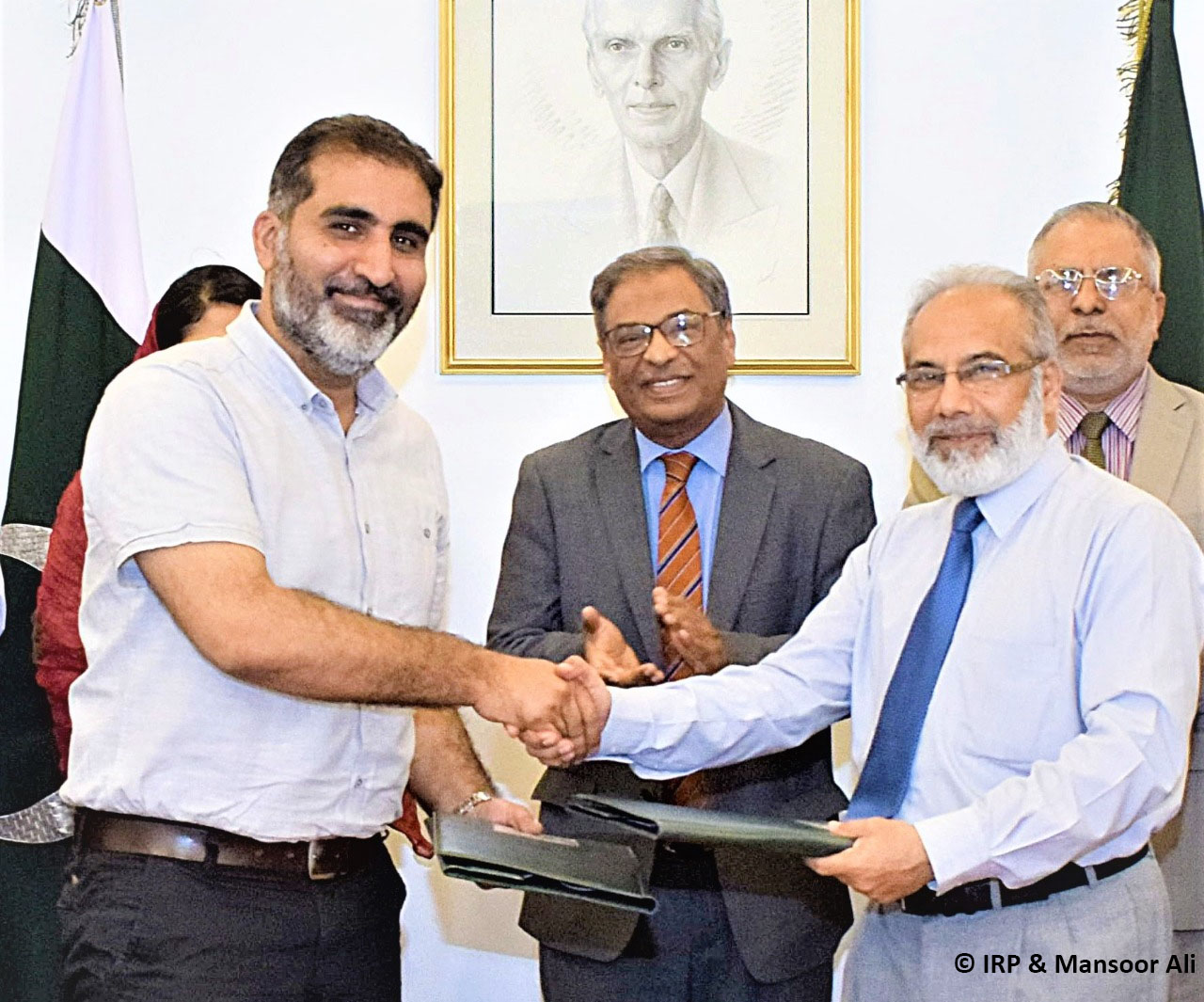Member of the Month: International Rescue Committee
This month we are celebrating the International Rescue Committee’s (IRC) great work on building accountability in their Pakistani projects. We chat with Zain Ul Abideen, IRC Pakistan’s Deputy Director of Programs to find out more…
 Hello Zain! First up, tell us about yourself? What motivated you to get involved in humanitarian action?
Hello Zain! First up, tell us about yourself? What motivated you to get involved in humanitarian action?
With 16 years of response management expertise in natural-disaster and conflict contexts I’ve experienced first-hand the important work of many development and humanitarian organisations. I joined IRC as the Deputy Director of Programs, Pakistan in August 2018.
My background is lecturing on development issues, which led me to work for the United Nations Development Programme (UNDP). Then, while volunteering in the wake of the 2005 earthquake in Pakistan, I witnessed the response of the humanitarian NGO MERLIN. MERLIN’s technical team walked more than 90 kilometres through tough mountain terrain to create a five-site health response programme. This touched my heart. So, I joined MERLIN as a humanitarian.
How does the Core Humanitarian Standard help with IRC’s work?
The CHS not only guides us on how to become more accountable and quality conscious as an organisation, but it also explains to those we serve what they should expect from us. So, it balances these different considerations. Also, adopting the CHS provides a strong basis for donors to get clarity on how IRC will engage affected populations in their projects.
What did you learn from conducting a CHS self- assessment with CHS Alliance? What are your next steps?
We found that we were good at receiving client feedback! However, we realised that we were weaker when it came to documenting our processes, and could also improve our responses to clients’ questions and concerns. To overcome this weakness, we made some changes:
- We established feedback channels including setting up a hotline for all projects. Our feedback channels were split into proactive and reactive ones.
- Our team also created accountability plans integrated into all four stages of the project cycle – design, start-up, implementation and closeout.
- We integrated accountability and quality issues into our HR processes and staff management programmes. For example, we incentivised our staff to be responsive to our clients’ needs by making it part of their performance appraisals.
We heard you were working on an exciting new project. Can you tell us about it?
Yes! IRC is part of the national Pakistan Accountability Working Group (AWG). The AWG is a country-level forum for humanitarian and development agencies committed to promoting quality and accountability in aid. Working together with a range of organisations, we have now developed posters, banners and other useful materials to be more responsive to the communities we serve. IRC helped develop these materials by putting the Core Humanitarian Standard on Quality & Accountability (CHS) at the front and centre of this work. Working with CHS Alliance, we contextualised the CHS so that affected populations will understand how to hold us to account for our work.

To strengthen community resilience in Pakistan, Zain Ul Abideen signs an MoU between the Government and a group of humanitarian organisations.
IRC partners with national and local NGOs. Could you describe how that partnership works when it comes to quality and accountability?
Our partners usually have accountability standards in place. We look at these when conducting pre-award assessments and we work closely with partner organisations to close any gaps that occur in practice. We also provide continuous support to our national and local partners to help them establish and strengthen quality and accountability in their work. IRC Pakistan regularly conducts lessons learned meetings to make sure programmes are delivered effectively, efficiently and adapted to the context.
The Grand Bargain signatories held their annual meeting this month in Geneva. In 2016 they committed to a “Participation Revolution.” IRC is a signatory. Thoughts?
For organisations like IRC, the essence of the ‘Participation Revolution’ is taking a people centered or client-oriented approach in a humanitarian situation. It means ensuring our response is relevant, efficient, effective and timely. IRC’s strategy is based on this concept, and we make sure that our clients’ participation and feedback is incorporated at every stage of a project. In fact, we try to go above and beyond the client-collaboration standards of the sector.
You’ve been working on quality and accountability for many years for different organisations. Could you give an example of how that work has resulted in more effective programming on the ground?
In comparison to where we were several years ago, now the voice of those we serve has found its place and space in humanitarian programming. This journey started with simply identifying clients’ needs, now we are co-designing and reviewing projects with clients. I call this a stage of excellence. We now have more client-oriented programming, rather than bringing in imported ideas that can results in harm or even conflicts.
Finally, how can we in the humanitarian and development sector collectively improve our work?
I think two points are important:
- More information sharing among the I/NGOs/ CSOs and with our clients. This will spread awareness and generate demand for suppliers to deliver.
- Greater coordination among sector actors, not only for specific projects, but on sector wide interventions. We need to synchronise our efforts to avoid duplication and not miss out any key considerations.
